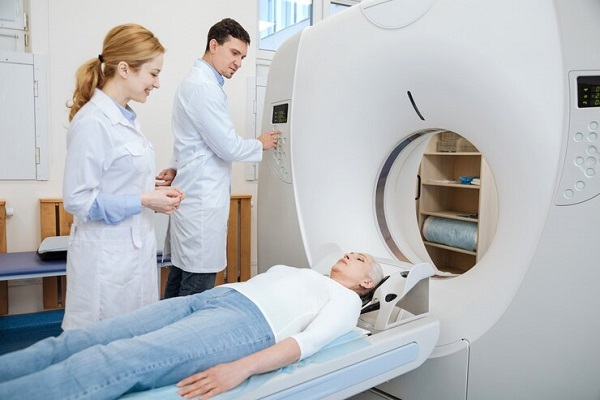MRI SCANS
Book Appointment
MRI of the brain and spinal cord
A special type of MRI is the functional MRI of the brain (fMRI). It produces images of blood flow to certain areas of the brain. It can be used to examine the brain’s anatomy and determine which parts of the brain are handling critical functions.
This helps identify important language and movement control areas in the brains of people being considered for brain surgery. Functional MRI can also be used to assess damage from a head injury or from disorders such as Alzheimer’s disease.
The MRI scan is a vital tool for doctors to identify and diagnose a host of ailments. This image diagnostics procedure is superior to a CT scan, as it produces 3D images, which offer enhanced depth and clarity for diagnosis. The MRI scan is also considered to be the safest image diagnostics tool because of the lack of radiation, which typically is a standard component of other imaging tests, barring an ultrasound.

The type of MRI scan the doctor recommends depends on the medical issue that the test is for. The following are the main MRI scan types that are ordered most frequently:
- Functional MRI: This MRI scan type is used to observe the brain activity of the patient, by monitoring the blood flow. The cerebral region in use shows an increased blood flow. Functional MRI is generally conducted to map the brain’s functional areas.
- Magnetic Resonance Angiography: MRA or Magnetic Resonance Angiography uses contrast material to scan and observe the movement of blood vessels. This MRI scan type is primarily used to scan the heart and soft tissues while assessing the blood flow.
- Magnetic Resonance Venography: MRV or Magnetic Resonance Venography also uses intravenous contrast dye to observe and monitor the veins. The MRV provides a clear picture of the veins and the blood vessels and is used to identify the cause of leg pain as well as other vein-related issues.
- Cardiac MRI: As the name suggests, a cardiac MRI is specifically performed for cardiovascular issues. This MRI type scans the heart and its structures to locate and identify heart-related issues.
